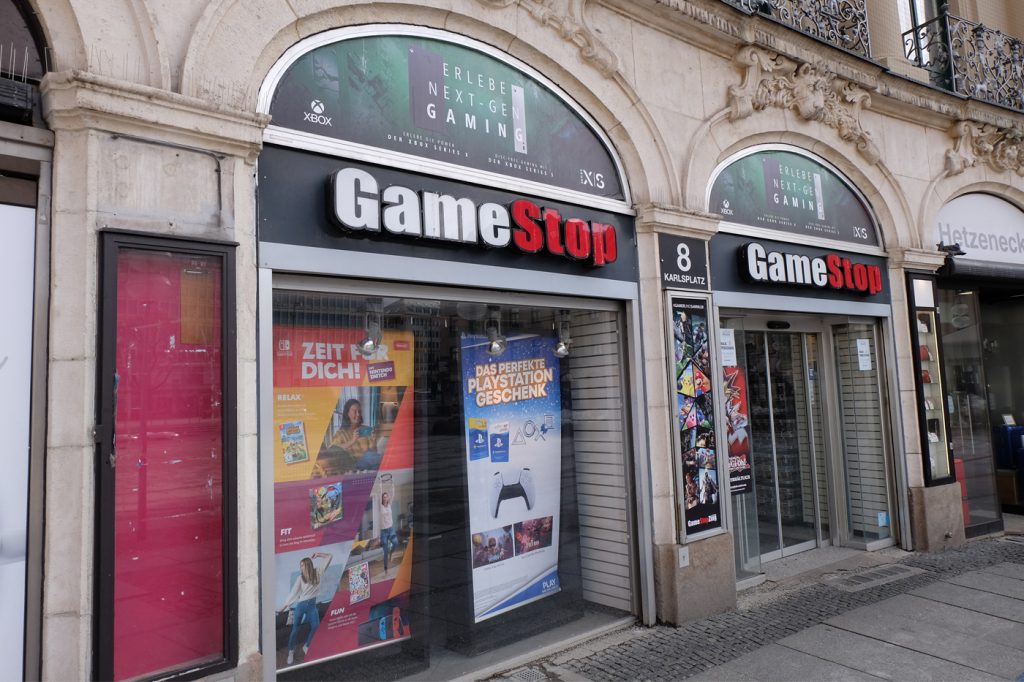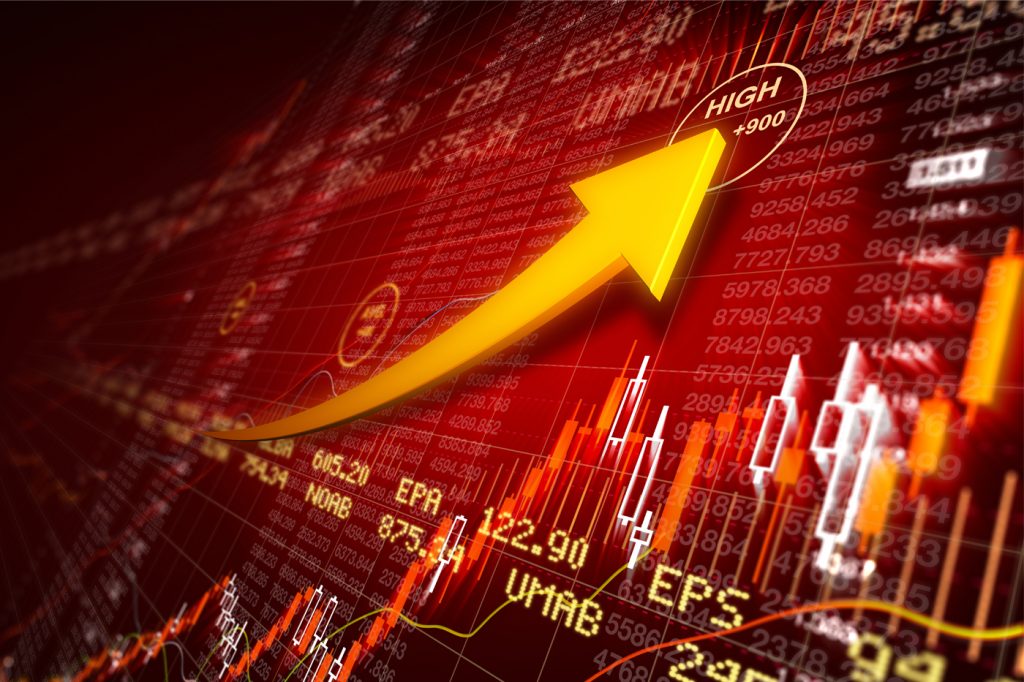Eye-openers from GameStop’s Wild, Wild Ride
Consequences to the internet-dubbed “greatest real short burn of the century”.
Consequences to the internet-dubbed “greatest real short burn of the century”.

By Kannan Agarwal
By now, every financier worth his or her salt would have heard of GameStop Corp, the stock which – thanks to a subreddit called wallstreetbets – climbed a whopping 1,625%, resulting in multi-billion losses at hedge funds like Melvin Capital and other short-sell firms.
For the uninitiated, a subreddit (denoted by the prefix “r/”) is a forum on the social platform Reddit, where users post questions and engage with other Redditors. Hence, r/wallstreetbets is a forum about…well…what wall street bets. It’s a mix of people from all walks of life – from teenagers seeking investing tips right up to divergent views from prominent analysts.
In a recent radio interview on NPR, Brandon Kochkodin recounts: “It started with someone laying out the case that was, you know, GameStop’s being treated in the market as if the company already went bankrupt. But if you look at the fundamentals, they have cash, they can pay their debt, they can service their debt. This isn’t a bankrupt company yet, there’s something there still and people are overlooking it.
“If you saw a classic value investor make the arguments that they were making for GameStop on wallstreetbets, you wouldn’t flinch. You would look at it, and you’d be like, “Oh, good idea.””
When GameStop Corp listed in 2002, it was a successful American video game retailer, opening thousands of stores all over the world. However, its fortunes plunged as video gamers switched to downloading games over the Internet. GameStop stocks dwindled as it shuttered most of its stores.
Around 2014, GameStop was trading around USD50, but hit rock bottom in March 2020 at an average of USD3.60. This triggered wallstreetbets to take a closer look at the company’s financials, wondering if the institutional investors on Wall Street proper, who said the company would soon go bust, had missed something.
The most notable of value investors who questioned this was Dr Michael Burry, the CEO of famed hedge fund Scion Asset Management, whose billion-dollar bet against the US housing-market bubble is immortalised in the Hollywood movie, The Big Short. There was also Ryan Cohen, known as the man who took on Amazon and won.
The pivot came when a pseudonymed user, Player896, posted his analysis Bankrupting Institutional Investors for Dummies, Ft GameStop, arguing that the video game retailer’s fundamentals were solid and institutional investors were shorting the stock at an unprecedented level: “But here is the real kicker. GameStop’s short float. 120% has never been seen before. The short theory was that GameStop would not make it to the new console cycle and the shorters would collect their tendies.”
GameStop then announced that Cohen would join its board and the stock climbed to USD40 in under two weeks. This prompted high-profile short-sellers like Andrew Left of Citron Research, nicknamed the bounty hunter of Wall Street, to throw the gauntlet and state, “Five reasons why GameStop is going to USD20”.
Redditors on wallstreetbets took it upon themselves to “teach Wall Street a lesson”. In late January 2021, small investors rallied on wallstreetbets, sending GameStop stock to an all-time high of USD483.
Hedge funds and short-sell firms like Melvin Capital and Citron lost close to USD20 billion by shorting GameStop. Two days later, Left conceded that the majority of Citron’s position was covered “at a loss of 100%” and announced on Twitter that it would quit publishing short reports and will focus instead on long or bullish investments.
Left said: “Twenty years ago I started Citron with the intention of protecting the individual against Wall Street, against the fraudulent stock promotions that were all over. Now, after 20 years we noticed something…we’ve actually become the establishment…it’s completely now lost its focus.”
“We understand the changing dynamics in the market. So with that, we’ll become more judicious when it comes to shorting stocks.”
The GameStop price action is a unique juncture between finance, social action, and technology. At the time of writing, regulators are actively addressing these emergent dynamics:
Increased scrutiny on several fronts:
Regulators and legislators have moved to curb the inordinate sway of non-bank players like hedge funds, open-ended funds, and money markets. Evidently, their control of the stock market through large-sized short positions pose systemic risks to the broader financial sector. The GameStop short-squeeze adds to risk concerns highlighted by the US Financial Stability Oversight Committee, which is mandated to minimise risk through consolidated supervision of designated nonbank financial institutions or break up those that pose a “grave threat” to the financial system. Market watchdogs have also called for greater oversight on par with banks.
At its hottest point, online trading platforms, like the commission-free Robinhood, temporarily halted trading of GameStop and other meme stocks. This is after it helped fuel the frenzy by offering free GameStop stocks last year to new investors on their game-like investing app. It is now facing regulatory censure and civil lawsuits claiming that it violated customer agreements and industry rules.
“I am concerned about whether or not Robinhood restricted the trading because there was collusion between Robinhood and some of the hedge funds that were involved with this,” said Maxine Walters, who chairs the US Committee hearing on this.
The US Financial Industry Regulatory Authority has also issued a letter to brokers indicating it would look into whether Robinhood-executed trades sufficiently disclosed investing risks to clients and if its actions exacerbated GameStop swings.

Through the power of sheer numbers, retail investors got organised and turned the tables on US institutional investors using a tried-and-true hedge fund strategy.
Forbes interviewed John Reed Stark, former Chief of the Office of Internet Enforcement at the US Securities and Exchange Commission (SEC), who opined: “Whether the banding together by Reddit users to buy a stock is illegal is always going to be a matter of intent, that is, an intent to artificially distort the market for a security. Historically, the SEC has required some sort of deception, fraud, false statement, etc. before charging any sort of unlawful activity.
“I also can’t help but notice at least one odd irony here: that banding together is not limited to Reddit users. Hedge funds band together too. Many hedge fund managers freely share investment ideas with one another, through instant messages, emails and private chats. In fact, according to a Wall Street Journal article, some hedge fund trades stem from what are so-called ‘idea dinners’, where hedge fund managers discuss stocks, markets, and economic trends.”
Wallstreetbets’ Keith Gill a.k.a. Roaring Kitty, whose in-depth analysis of GameStop helped spark the price surge, has testified at a congressional hearing which found no wrongdoing on the part of retail investors, who disagreed with Wall Street valuations and gave a detailed analysis why. The SEC could find no wrongdoing as GameStop strategy was publicly announced and, in some ways, even more transparent than hedge funds themselves.
Combing through the forum indicates that there are fundamentally sound users on wallstreetbets.
Mohammad Rajjaque, Programme Director at University of Sheffield and long-time wallstreetbet member, in his article titled GameStop: I’m one of the WallStreetBets ‘Degenerates’ – Here’s Why Retail Trading Craze is Just Getting Started, sheds light on the platform’s open peer-review and due diligence (DD) process.
“These DDs were scrutinised and discussed by members and any discrepancies in arguments or data were usually identified quickly. Existing members continually reminded newcomers about the risks involved with suggested trades and cautioned that anyone putting more than 2% of their total capital into a risky trade was making a mistake.
“The most important feature of the forum was transparency. Members regularly shared the status of their trade – both losses and profits. Traders like Gill even regularly posted the status of their portfolio, including losses.”
Platforms like Reddit have created a sort of brotherhood for like-minded individuals. The critical question that needs addressing is why retail investors are increasingly distrustful of what they call “the establishment” a.k.a. Wall Street proper.
Like how crowdfunding changed political fundraising for President Obama and Senator Bernie Sanders, raising millions of small-dollar donations from citizens, today’s retail investors are similarly flexing their collective power.
Its ‘success’ continues to spark a rally on other stocks touted as “the next GameStop” and has spawned other retail-investor subreddits throughout the world, including Malaysia’s very own r/bursabets.
However, as wallstreetbets subscriber base explodes to 9.4 million at the time of writing, it’s yet to be seen whether the forum will continue its activist streak or become a victim of its own success.
Wallstreetbets isn’t just a forum, but a cohesive community populated with lingo that only insiders get.
For instance, the word ‘tendies’ – short for ‘chicken tenders’ – refers to winnings; diamond hand emojis (💎🖐) mean you’re ready to hold a position to the very end, win or lose; poo hand emojis (💩🖐) mean someone is feeling scared and selling too soon.
Ultimately, it is the emotional connection and shared values of its users that drove the GameStop rally. In fact, some are still holding on with 💎🖐 for no other reason than to “stick it to the hedge funds”.
Plus, it seems the tussle over whose analysis is truer will rage for some time yet. When GameStop announced its 4Q earnings on 25 March 2021, established media outlets like Bloomberg headlined the stock’s USD215 million loss in the 12 months ended 30 January, whilst online sites such as the ever-popular The Motley Fool emphasised Gamestop’s 175% surge in global e-commerce sales in the holiday-impacted quarter.
Irrespective of which camp one is in, Redditors’ promise to drive the shares “to the moon” has undoubtedly spurred reform.
In a recent Fortune article, Nathan Anderson, founder of Hindenburg Research sums it well: “While the guns are turned on short-sellers at the moment, I’m encouraged that the right questions are finally being asked. It’s early, but I’m hopeful that it leads to a broader understanding of how the system is flawed. Because that’s the only way it will ever actually improve.”
Kannan Agarwal is a researcher with Akasaa, a boutique content development and publishing firm with presence in Malaysia, Singapore, and the UK. His focus is digital content and Big Data analytics.